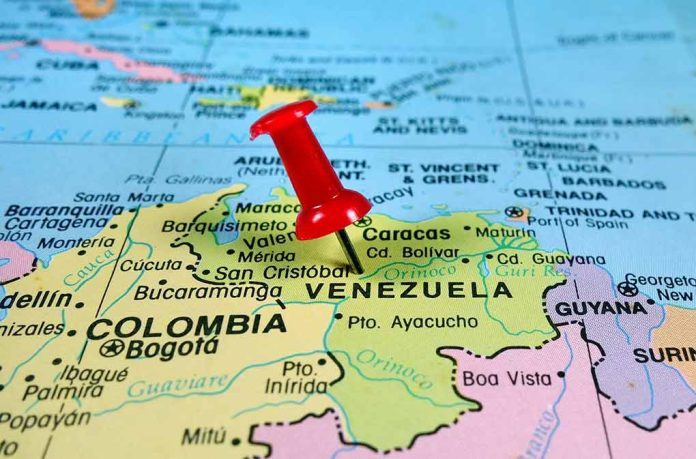
The resumption of repatriation flights from the U.S. to Venezuela has sparked concerns over security risks, with gang affiliations among deportees raising eyebrows.
Key Takeaways
- Approximately 200 deportees, including suspected gang members, were flown back to Venezuela from the U.S.
- The flights resumed after Venezuela and the U.S. reached a diplomatic agreement over the weekend.
- Some deportees taunted the U.S. upon landing, while others made the sign of the cross.
- Venezuela suspended prior flights due to U.S. Treasury actions against Chevron.
- Security concerns arise with potential Tren de Aragua gang members among deportees.
Resumption and Concerns
Dozens of deported illegal migrants, believed to include members of the Tren de Aragua gang, were returned to Venezuela this week. Nearly 200 individuals arrived at an airport near Caracas on Monday morning. The resumption of these flights follows an agreement reached between the U.S. and Venezuela over the weekend.
Concerns are mounting as the returnees included suspected gang members, intensifying worries about criminal activity in the region. A source from Homeland Security confirmed that some of the deportees were active members of the notorious Tren de Aragua gang, which has been linked to various criminal activities.
Diplomatic and Humanitarian Focus
The Venezuelan government had halted the flights earlier, citing the U.S. Treasury Department’s actions against Chevron as a point of contention. With the return of these flights, the focus shifts to ensuring a dignified repatriation of Venezuelan nationals.
President Nicolás Maduro claims to balance human rights concerns with national security, but many remain skeptical of his true intentions. Given the ongoing crisis of illegal immigration at the U.S. southern border, this development raises concerns about how Venezuela’s policies may impact American interests.
Jorge Rodríguez, Maduro’s chief negotiator, emphasized their commitment to return Venezuelan citizens who require assistance. Rodriguez firmly stated, “Migrating is not a crime and we will not rest until we achieve the return of all those who require it and until we rescue our brothers kidnapped in El Salvador.”
International and National Implications
As the flights resume, international relations between the U.S. and Venezuela are put to the test. The operation reflects broader challenges in managing migration while tackling potential criminal activity linked to deportees. The situation underscores the complexity of upholding sovereignty while maintaining global human rights standards.
Jorge Rodríguez reiterated the Venezuelan government’s stance on migration, highlighting the inherent rights of individuals to return home safely. This ongoing dialogue emphasizes the need for international cooperation and mutual understanding at a time of heightened global tensions.


